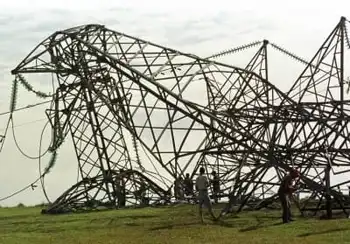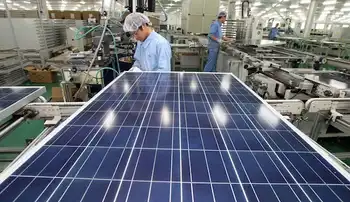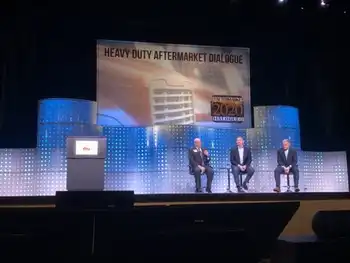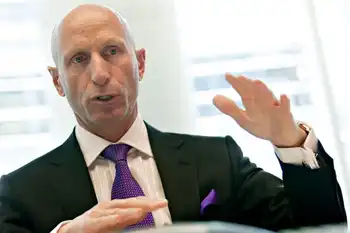Advice on how to cool rising utility costs
Most local utilities offer tips on how to reduce bills through conservation and better maintenance of heat and air-conditioning systems.
Utilities also can help diagnose problems with the cooling system that may be causing unusually high electric bills.
"We're seeing some of the highest bills we've seen in years," said Chita Wampler, customer service manager at Lenoir City Utilities Board.
High bills usually lead to lots of calls, she said. LCUB customers can call the customer service line for phone support or to have a technician visit their home if there appears to be a problem.
Earlier, the Knoxville Utilities Board sponsored a series of Money-Saving Tips Workshops held at the L.T. Ross Building on Western Avenue. KUB customer service representatives were on hand to provide helpful advice and even demonstrations of energy saving technology.
"We are a field extension of the telephone support services," said Dennis Barnard, KUB utility service adviser.
The summer season brings a more-than-average volume of customer service requests. Often it's the increased monthly bill that spurs the inquiry, Barnard said. "When customers have high bills they start calling us to find out what's wrong."
Conservation and regular maintenance are among the most important factors in reducing energy and utility costs, he said.
As far as air conditioning is concerned, customers need to exercise discipline, especially during heat waves, he advised. A customer's natural instinct is to turn down the temperature when it gets hotter but in fact they should be turning the thermostat up, he said.
Over the course of a year, cooling accounts for approximately 20 percent of the average household's energy dollars. During the summer, that percentage is much higher, Barnard said.
The best place to set your air-conditioning thermostat is about 18 degrees to 20 degrees below the outside temperature. The savings from even small reductions in temperature can be substantial.
"Every degree a thermostat is raised saves 1 percent on a home's utility bill," Barnard said.
It also helps to look at other electricity-hungry devices in your home, including lights. The KUB workshop featured a display showing energy saving light bulbs that are four time more efficient than traditional incandescent bulbs.
Rickey Brown and his wife, Lisa, attended the workshop and spoke with representatives about cutting their utility bills.
"Bills have been higher this summer, especially the air conditioning," he said.
Brown was impressed with the display that showed how a single standard bulb can use as much electricity as four energy saving bulbs. He also picked up a pamphlet on other energy saving tips.
Technology investment such as energy saving bulbs and programmable thermostats can pay for themselves quickly, Barnard said. Programmable thermostats allow you to reduce energy use during the part of the day when the house may be unoccupied.
"Don't pay to cool an empty house," he said.
Water is another resource that must be watched closely during the summer, Barnard said. Customers generally use more water during the summer for gardening and other outdoor activities. Customers need to be aware of potential leaks and other waste that can add up quickly, he said.
Hallsdale-Powell Utility District offers customers who use a lot of water outdoors a discount on the installation of a second water meter, according to Connie Watson, who works in HPUD's customer service department. The meter will measure the amount of water used but the customer will not be charged the usual sewer fees for water that is discharged outdoors. The customer service department also can offer other energy saving tips for customers who want to cut their bills, she said.
KUB has a broad spectrum of printed material available for helping customers save money during the summer and the winter. The KUB website offers a free online energy audit and explains how customers can also sign up for TVA's In-Home Energy Evaluation.
Under TVA's IHEE program, electric customers may qualify for up to $500 cash back for making recommended improvements. There is a $150 fee for the audit, which is refunded if the customer makes at least $150 in qualifying improvements.
Related News

Survivors of deadly tornadoes may go weeks without heat, water, electricity, Kentucky officials say
DAWSON SPRINGS, KY - Residents of Kentucky counties where tornadoes killed several dozen people could be without heat, water or electricity in frigid temperatures for weeks or longer, state officials warned Monday, as the toll of damage and deaths came into clearer focus in five states slammed by the swarm of twisters.
Authorities are still tallying the devastation from Friday's storms, though they believe the death toll will be lower than initially feared since it appeared many more people escaped a candle factory in Mayfield, Ky., than first thought.
At least 88 people — including 74 in Kentucky — were killed by…





